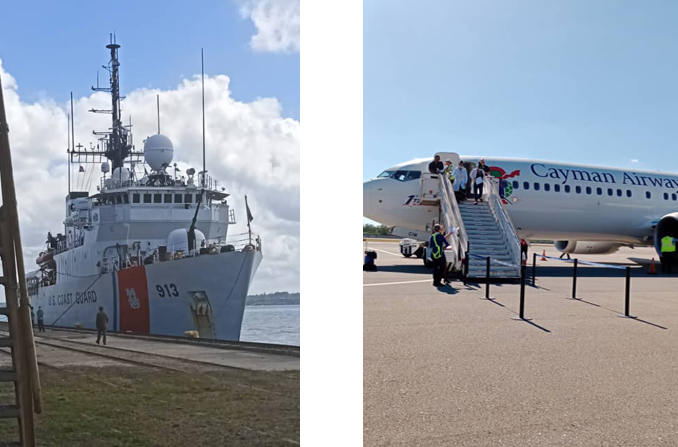
More than 1,000 irregular migrants have been returned in the first days of the year
Havana, January 16 (RHC) As part of bilateral migration agreements established by Cuba, on Friday, January 13, 38 irregular migrants were returned by air coming from the Bahamas, reported the Ministry of Interior through its Twitter account.
With this flight, in the first 13 days of the year, there were a total of 9 operations with 1,115 returnees: 6 were maritime, by the U.S. Coast Guard, with 970 people; 2 by air from the Bahamas, with 129, and another from the Cayman Islands, with 16, informed the Ministry of the Interior through its Twitter account.
The returnees in these first days of the year represent 9% of the total number of returnees in 2022.
Last January 8, the largest return in recent years by the U.S. Coast Guard was carried out through the port of Matanzas, with 273 people who had participated in illegal departures from the country.
The Cuban Government reiterated its commitment to regular, safe, and orderly migration, and insisted on the danger and life-threatening conditions posed by such movements by illegal means, mainly by sea.
As a result of the new migratory measures of Joseph Biden's administration, Cuban authorities support a more normal migratory relationship, including temporary visits between the two countries, which would contribute to reducing the migratory potential and the attempts to enter the U.S. through irregular routes and practices; at the same time, it would favor communication between Cuban families.
Ernesto Soberón, director of Consular Affairs and Cubans Living Abroad, of the Ministry of Foreign Affairs, recently stated that "a more rational policy on the part of the United States, and the integral compliance with the migration agreements signed demonstrated, in 2017, that it is possible to drastically reduce the irregular, disorderly and unsafe emigration of Cuban citizens to U.S. territory".
The diplomat added that Cuban authorities have warned the U.S. government for years "about the risks of the stimulus of the Cuban Adjustment Act and the privileged and politically motivated treatment received by Cubans arriving to U.S. territory, or its border."
He also pointed out that the tightening of the blockade aggravated the situation, since the worsening of socio-economic conditions in any territory becomes one of the fundamental causes of emigration, and Cuban emigrants are no exception. (Source: Granma newspaper)

